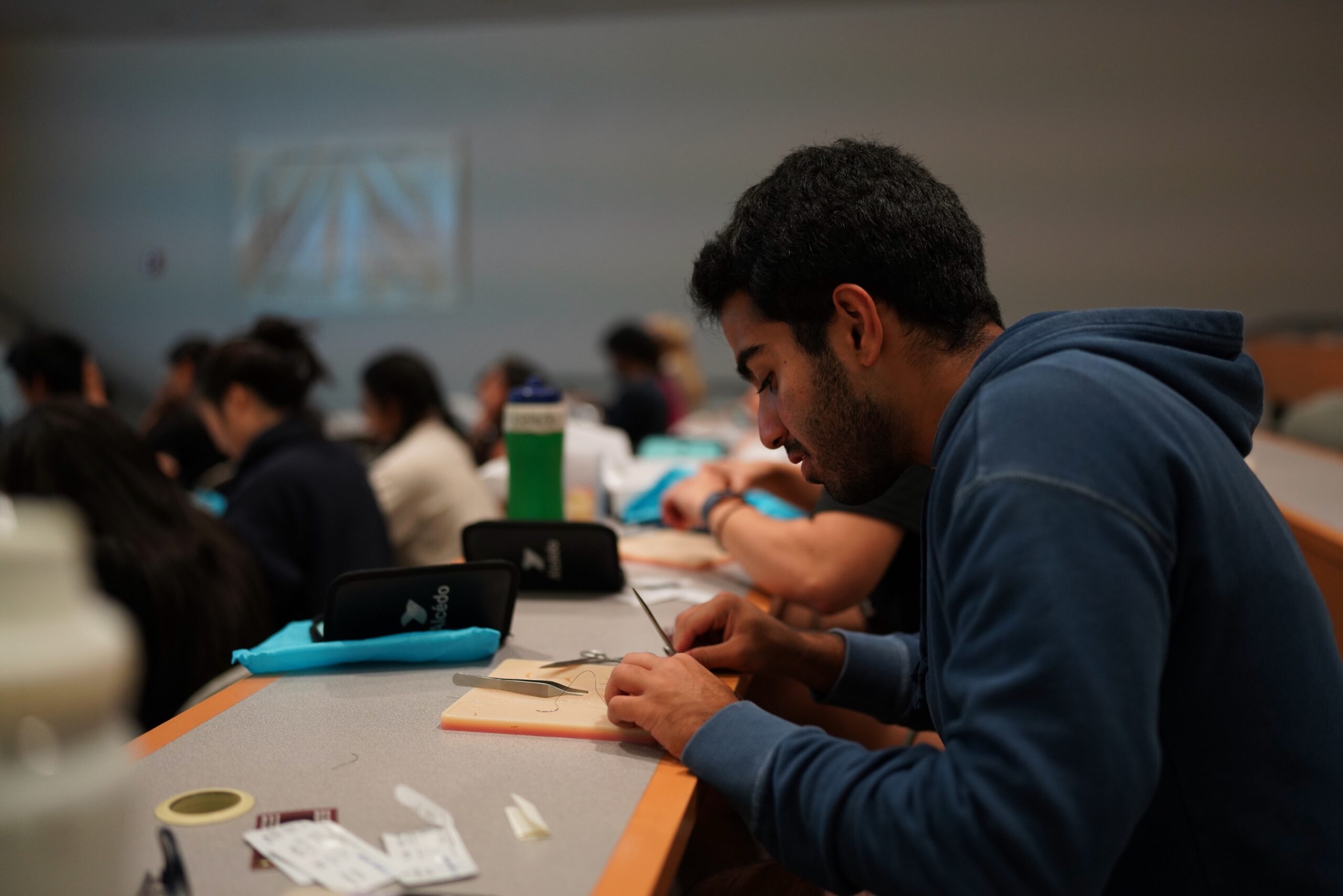BUMP’s suture clinic introduces students to first aid techniques, career pathways
November 10, 2022
 Eliza Rhee
Eliza Rhee
Although the majority of participants expressed interest in pursuing medical degrees after college, only a few students had practiced suturing prior to the clinic. Co-leader of BUMP Khushi Patel ’23 explained that this event was particularly meaningful to her because she participated in this clinic during her first year and wanted to bring it back for the first time since the pandemic.
“I think [the event] was just a great way to get people in a room, learn how to suture, do an in-person event and expose people to different avenues in healthcare,” Patel said.
During the first portion of the event, Lieutenants Ryan Harakel and Stephen Drost discussed their experiences as Army medical professionals. As a combat medic, Drost spoke about the various methods of training that he’s received for a range of emergency situations from chemical attack to swift water rescue. For Drost, the most rewarding aspect of his job was using his skills to provide humanitarian aid all over the world.
“We have responded to everything from the earthquakes in Indonesia and Haiti to the Ebola outbreak in Africa to the earthquake and tsunami that affected the Fukushima nuclear reactor,” Drost said. “We do everything from basic immunizations and health checkups to providing advanced medical care all free of charge to people who otherwise would not have access to any of these resources.”
Harakel spoke about the Army’s Health Professions Scholarship Program, which offers pre-health students opportunities to leave medical school debt-free by joining the armed forces. Additionally, scholarship recipients are guaranteed a residency, unlike students in traditional medical programs.
“We find it extremely valuable to be in front of a student body to convey a message about what our programs are and just get the information out so that people can make an informed decision about their future,” Harakel said. “If the Army is something that interests them, then we have a pathway for them to essentially leave medical school, dental school or vet school debt-free and potentially make money, which is unusual when you think about going to medical school.”
Divya Bhargava ’26 left the hands-on workshop excited to learn more about the art of suturing and improve her skills in future events.
“Both of my parents are doctors, so I’ve always known I wanted to do medicine in the future,” Bhargava said. “I went to the suture clinic because I thought it would be a cool skill to learn, but it’s definitely much harder than it looks on TV!”
In the spring, BUMP hopes to bring back Lieutenants Harakel and Drost to lead other workshops on topics such as intubation for airway management, CPR certification and more advanced suturing techniques. The club leaders also plan to hold networking events with other healthcare clubs on campus for individuals interested in pre-health, including a potential barbecue at the Schiller Coastal Studies Center. Patel remarked that these events aim to foster more community building and mentorship between pre-health students.
“Because it’s a small school to begin with, I think fostering community is a great thing we can do, and we have the resources and opportunities to do so,” Patel said.

Comments
Before submitting a comment, please review our comment policy. Some key points from the policy: